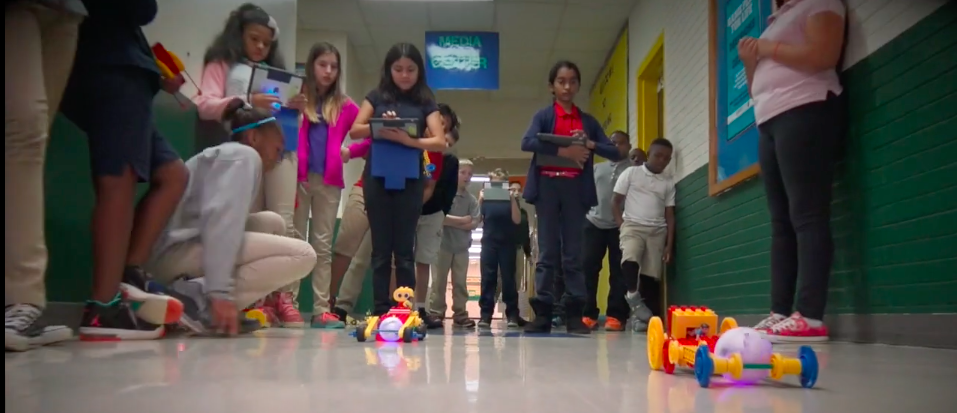Promoting Multisensory Learning Experiences That Benefit All Brains

No two kids learn in the same way, and the ability to cater to their primary learning modalities is a key way to ensure that you are hitting as many little brains as is possible.
What’s a learning modality, you ask?
A learning modality is how students employ sensory information to learn new information. Some people have one predominant modality. Others have a combination between two or three of them.
There are three basic modalities:
- Visual students learn from seeing
- Auditory learners learn from hearing
- Kinesthetic students learn from touching, doing & moving
Some experts also add “tactile” to the list but, for the purposes of this article, we will keep it simple with the 3 main types of learning.
The following chart outlines the characteristics of the learning modalities so you can look for them in your students.
Characteristics of Learning Modalities
Auditory learners…
- are talkative
- talk to themselves aloud (especially when studying or reading)
- enjoy music
- are great with names
- can be easily distracted
- hum or sing often
Visual learners…
- like to read
- spell well
- have nice handwriting
- find verbal instructions difficult to understand or follow
Kinesthetic learners…
- dress for comfort rather than style
- tap feet or pencils when ready or studying
- touch people during conversation
- do not like to read
- are poor spellers
- enjoy physical rewards
- express emotions physically
Children are too often expected to rely on their visual skills and sight to look and read information. Hearing is sometimes integrated when teachers speak. However, multisensory learning is much more than that.
Multisensory teaching attempts to employ all of the senses. It is not possible that every single lesson will use all of a child’s senses but engaging in at least more than one way is the goal. In multisensory teaching, the instructor shares information through as many senses as possible.
Here are a few examples…
Suggested Aids for Learning Modalities
Visual learners may benefit from….
- note-taking
- mind maps
- acrostics
- color codes
- flashcards
Auditory learners may enjoy…
- discussion
- rhythmic sounds
- theatre
- mnemonics
- rhymes and poems
Kinesthetic learners will like…
- walking as they read
- dancing
- role play
- stretch breaks
It is essential to note, however, that teachers shouldn’t build in a sensory activity for the sake of adding it but to rotate through the modalities as they make sense in the context of the subject matter. You want to keep the instruction varied and exciting but don’t throw in a movement activity (for example) for no good reason. It is also essential not to instill any concrete ideas into kids’ heads about what type of learner they are. This can limit their growth and development.
When done right, multisensory instruction helps kids tap into their learning strengths because it allows them to make connections and form memories in their own way. It also allows them to utilize a variety of ways to demonstrate mastery over what they’ve learned.
Multisensory teaching, at its heart, takes into account that all students learn in different ways, and it helps meet the varying needs of all kids. Multisensory lessons allow every student to learn and succeed in your classroom.






